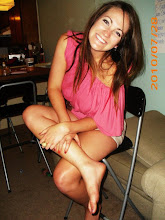"Kitchen-Table Politics" is the title of Sarah Palin's second chapter in her autobiography, Going Rogue, and one of the many anecdotes she uses to explain her never-ending balance between public office and motherhood. Apparently, Palin used a beautiful kitchen-table as her desk when she was in office, and this versatile table is noted in the book as a metaphor for Palin, who seems to adjust as easily between both lifestyles as the kitchen-table.
I am currently at page 100 of Going Rogue, and must admit I still like Palin. I do not know how much of the book Palin truly wrote herself (she does have a journalism degree, so she must know how to write), but regardless I am enjoying the book. I admire Palin for her commitment to her children, alongside her many ambitions; I like that she puts this possibility into action, unlike some feminists who seem to believe that a powerful career must be placed ahead of traditional family values. Although there are plenty of feminists who are mothers, I do not notice many who have such a large family, such as Palin's.
Yet even Palin realizes the strain of living both lives. She writes, "I wish I would have listened to my mother when she warned me that as a working mom I would have to make tough choices. She never said that one couldn't 'have it all,' but it was becoming clear that maybe one couldn't have everything at once." Palin understands the struggles of women with big dreams and big hearts, and she isn't ashamed to admit being a mother became her priority, which some feminists criticize.
Still, I was disappointed to find the entire book is an extension of Palin's political campaign. No, I am not surprised - I suppose I was just hoping the woman who rallies behind the people and rejects the conventions of the "good ol' boys club" and politics in general, wouldn't publish such an obvious message. For example, Palin writes, "Looking back it seems significant that many of my clearest childhood memories involve politics and current events. I don't remember my ten-year-old friends being especially interested in who the president was, but to me it was a pretty big deal." There are also plenty of paragraphs detailing Palin's love of Alaska, the United States and being an average American with traditional Christian values. I am neither questioning these statements nor implying that Palin is not exactly as she is described - I just hate that some connections are clearly catered to a specific audience and made only to remind the reader that this woman is worthy of your political vote.
I have approximately 300 more pages to read, so maybe some opinions will change towards the end. Sidenote: My father suggested I read Hillary Clinton's autobiography, Living History, immediately after finishing Palin's book - this seems like a pretty good idea. I wonder how her view on family and politics will compare to Palin's?
03 January 2010
Subscribe to:
Post Comments (Atom)

No comments:
Post a Comment